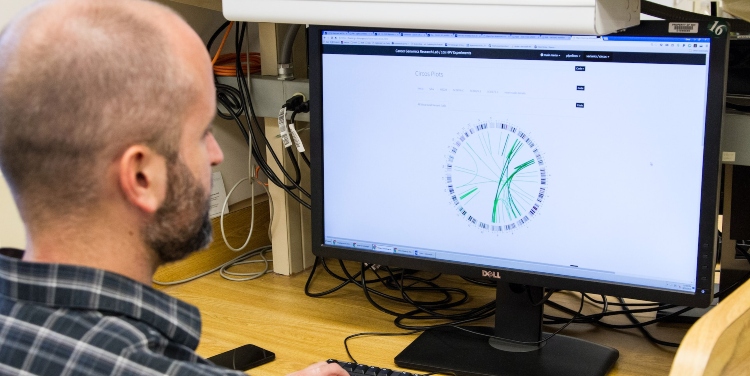Psychedelic drugs have recently been a topic of much debate and controversy, with some advocating for their therapeutic benefits. In contrast, others express concern about their potential harm. The United Kingdom, known for its strong stance on drug policy, has recently taken a step to “bodyblock” research into Psychedelic drugs.
Bodyblock in the context means holding back further research on psychedelic drugs. The decision has been met with mixed reactions because there were clear positive outcomes in its use for depression. Here, we will provide an overview of the UK’s decision to “bodyblock” psychedelic drug research, the reasons behind the decision, and its impact on the progress of scientific research.
What are psychedelic drugs?
Psychedelic drugs are a group of substances that produce profound changes in perception, mood, and thought. They are often referred to as “mind-altering” drugs due to their ability to alter consciousness and cause vivid hallucinations.
An example of a psychedelic drug is the prodrug psilocybin–the active ingredient in “magic mushrooms. After ingestion, it is converted into psilocin, the compound responsible for its psychoactive effects. Other examples include LSD, mescaline, and DMT.
Historically, these drugs have been used in spiritual and religious rituals. In recent years, there has been growing interest in their potential therapeutic benefits for mental health conditions such as depression and anxiety. They are also an impressive innovation in drug addiction treatment. However, their use in depression treatment remains controversial. Governments tightly regulate it due to concerns about their safety and potential abuse. Treatment specialists are still waiting on approved, peer-reviewed medical studies to confirm the benefits of this type of treatment for co-occurring depression and addiction.
The history of Psychedelic in The UK
Psychedelics have been used for centuries in the UK for religious and spiritual purposes. Still, their widespread recreational use began in the 1950s and 1960s. In 1953, Humphry Osmond coined the word “psychedelic” from his research on LSD using Aldous Huxley. He postulated that the drug had mind-manifesting possibilities. But his studies ended in 1960.
In the late 1960s, more researchers in the UK began exploring the therapeutic potential of psychedelics, conducting studies on their use in treating various mental health conditions. The use of psychedelics became more popular, and so did its abuse. This led to their criminalisation and classification as Class A drugs under the Misuse of Drugs Act in 1971. Using them attracts a fine or over seven years in prison.
In recent years, there has been a resurgence of interest in the therapeutic potential of psychedelics. Many clinical trials have been conducted in the UK to explore their use in treating various mental health conditions. A recent clinical trial was approved by the UK’s Medicines and Healthcare products Regulatory Agency (MHRA). Despite the ongoing interest and research, psychedelics in the UK remains highly regulated, and their use is generally restricted to research and clinical settings. Now, this research has also been limited or “bodyblocked.”
Why did the UK decide to “Bodyblock” psychedelic drug research
In 2020, UK regulators approved using psychedelics to treat some depressive disorders besides significant depression. In fact, a recent clinical trial suggested that psilocybin effectively treats multiple depressive disorders. Still, psychedelics are a class one classified drug.
As a result of these factors, the UK government decided to criminalise the use of psychedelics and restrict research into their therapeutic potential. The criminalisation of psychedelics and the restrictions on research made it difficult for scientists and researchers to study these drugs and explore their therapeutic potential, which has only recently begun to be rediscovered.
To this effect, multiple individuals and medical practitioners want it downgraded to schedule two. The difference between schedule 1 and 2 drugs is that schedule I drugs have no current medical use with a high potential for abuse and addiction. In contrast, Schedule II drugs have some medically acceptable benefits but a high potential for abuse and addiction.
According to world-renowned British psychiatrists, psilocybin is regulated like cocaine when it is not nearly as dangerous. Admittedly, there are side effects and addiction tendencies. Still, there are verified clinical uses for the drug. Psychedelic drug research in the UK requires a Home Office licence and other security arrangements. Multiple psychiatrists have written to Sajid Javid, the health secretary of the UK, to reconsider this decision.
What are the effects of the decision?
The decision to restrict research into psychedelics in the UK has quite a number of effects that will arise from it, including:
- Halt in research: The restrictions on research into psychedelics effectively brought scientific investigation into the therapeutic potential of these drugs to a halt, limiting the development of new treatments and therapies. It also actively affected the funding for research related to psychedelic drugs.
- The criminalisation of use: The criminalisation of psychedelics as a class 1 drug led to stigmatising these drugs and made it difficult for individuals who could benefit from their therapeutic effects to access them. The research also expresses this because the paperwork to access them discourages scientists.
- Lack of public education: The restrictions on research also meant that the general public was not provided with accurate information about the potential benefits and risks of psychedelics, leading to a lack of understanding and misinformation.
- Underground use: Restricting the use of psychedelics does not mean it goes away. The criminalisation of psychedelics made their use largely underground, making it challenging to monitor and regulate their use. It also potentially increases the associated risks.
What is the way forward?
The way forward for psychedelics involves further research, responsible regulation, and education.
- Further research: Continued research into the therapeutic potential of psychedelics is essential to fully understand their benefits and risks and to develop safe and effective treatments. As more medical benefits are discovered, the pressure increases to decriminalise psychedelics.
- Responsible regulation: As research into psychedelics progresses, it is vital to establish a regulatory framework that balances the need to ensure safety with developing new treatments and therapies.
- Education: Providing accurate and up-to-date information about psychedelics to the general public and healthcare professionals is crucial for reducing stigma, promoting informed decision-making, and improving access to treatment.
- Integration with traditional therapies: Another way is to explore the potential for psychedelics to be integrated with conventional treatments, such as psychotherapy and medication.
Final Thoughts
Despite the multiple restrictions, the recent resurgence of interest in the therapeutic potential of psychedelics has led to a renewed focus on research and the development of new treatments and therapies. The effects of the decision to restrict research into psychedelics continue to be felt. Still, the ongoing research and progress in this area hold promise for the future.
David Prior
David Prior is the editor of Today News, responsible for the overall editorial strategy. He is an NCTJ-qualified journalist with over 20 years’ experience, and is also editor of the award-winning hyperlocal news title Altrincham Today. His LinkedIn profile is here.












































































